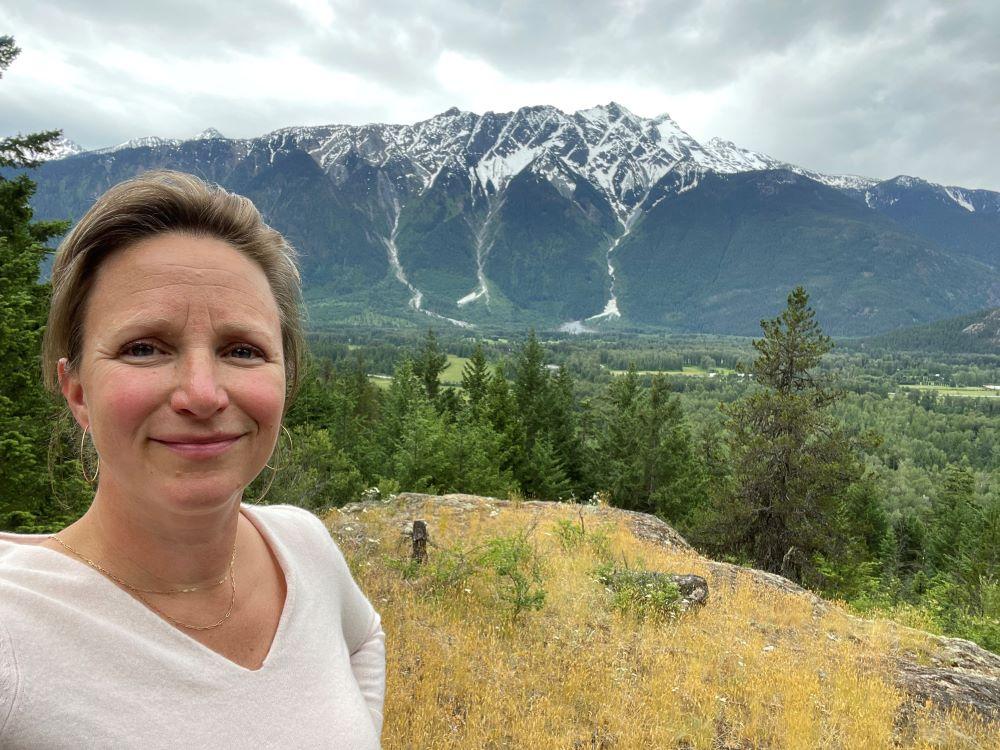Student Research Feature: Veronica Woodruff

The School of Leadership Studies would like to extend our heartfelt congratulations to Veronica Woodruff on the completion of a Master’s Thesis titled, From resilience to ruggedization : a roadmap for building collaboration to address increasing natural hazard risk in Pemberton, BC.
This thesis is available through RRU’s library here.
We asked Veronica a few questions about this research and this is what they said:
What are some key takeaways from your thesis that would be helpful for other leaders?
My research project focused on understanding multi-agency collaboration in addressing natural hazard risk. One of my key takeaways was that tackling complex challenges requires an equally complex, multi-layered response. Strategies to increase community protection can be straightforward policy changes or assumptions of community priorities that can neglect to address the level of situational complexity and lack adaptability in a world of unprecedented risk scenarios, such as the 2021 heat dome and atmospheric rivers, and the 2022 drought. It is time to deepen the resolve for resilience into ruggedization—a commitment to addressing risk by rapidly implementing locally-driven, realistic solutions that create opportunities for learning and can adapted as necessary.
How is the organization moving change forward based on your work?
My capstone partner was an autonomous improvement district that is charged with community flood protection. They are inspired to continue deepening their collaboration with other governments, response agencies, and public through budget allocation, targeted engagement, participation in applicable committees, and strengthening relationships both locally and importantly, with higher levels of government.
What surprised you about your experience of the thesis process?
I started this program at the onset of the pandemic, in June 2020. I was surprised that I was able to make such deep connections with my cohort. The seven other women that decided to write a thesis were incredibly important to the successful completion of my work. I am leaving the program with life-long colleagues that I have never met in person.
How are you applying lessons learned from your whole MA-Leadership journey?
The MA-Leadership program is structured to first explore oneself, then self-in-community, then broadens to community-in-systems. I was surprised about the internal reflection built into the start of the course work, but this was an incredibly important component of systems thinking. I think that this self-reflection may be an important component to be brought into any engagement, especially when communities are involved. Can you imagine starting an official community plan review that spent the first day exploring the strengths and potential biases of the committee participants before delving into any community content? It might be as life changing as this program.